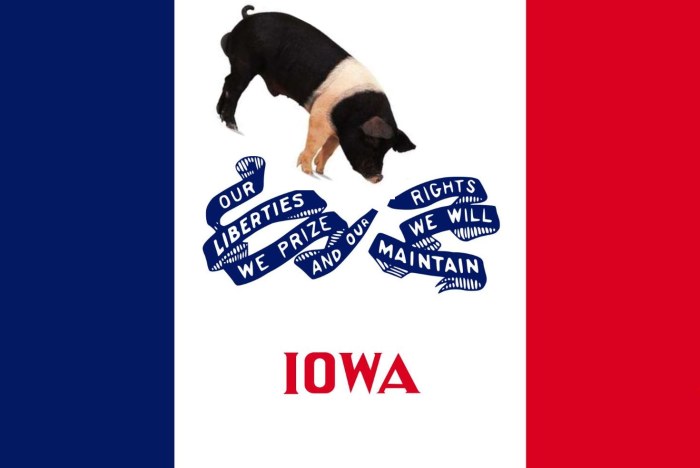Chris Jones is a research engineer (IIHR-Hydroscience and Engineering) at the University of Iowa. An earlier version of this piece was first published on the author’s blog. -promoted by Laura Belin
I have written some things about manure lately (link, link, link, link). If you were able to make it to the end of those essays, you learned:
· We have a lot of livestock animals in Iowa
· These animals produce a lot of waste
· This waste is used to fertilize crops
· Manure is a good fertilizer
· Sales of commercial fertilizer are not affected very much by the availability of manure
Furthermore, those essays highlighted the following conclusions culled from the scientific literature:
· When farmers use manure, they tend to apply nutrients well beyond the agronomic needs of the crop
· Livestock density correlates with degraded water quality
For the most part, those are uncontroversial positions in my world. Almost mundane, really. University researchers know this, commodity organizations know this, agency people know this, politicians know this, farmers know this. However, most of those folks are afraid to talk about those last two bullets in public.
When I throw some words at those bullets and put the information in relatable maps, the industry responds not with ideas to better manage the situation, but rather with a Des Moines Register guest column by the Iowa Farm Bureau Federation’s public relations manager Laurie Johns:
FOR THE LOVE OF GOD WE NEED MORE HOGS
Her argument goes like this: our cropland has the capacity to handle twice as much manure and therefore twice the number of hogs.
Ok, that’s cool. Do our streams have the capacity to handle more nutrients, assuming we don’t reduce commercial fertilizer inputs by commensurate amounts? Of course we don’t know, because our agencies take the industry position and actively oppose nutrient standards for the public’s water.
A guy named George Orwell once wrote, “so long as they [the public] are not permitted to have standards of comparison, they never even become aware that they are oppressed.” Amen, brother, amen. Whatever happened to the common good?
I’m hesitant to make certain distinctions in my writing, but when somebody does it for you in public, what the heck. As the saying goes, don’t look a gift hog in the mouth:
Me: Cleaner Water.
Industry: Double the Hogs.
Folks, there are people who look at a green lake or a brown stream and say, “What’s the big deal? After all, BACON!!” As if civilization just figured out how to cure pork.
I know this is an agricultural state and a great place to raise corn and soybeans and a great place to concentrate the animals that will eat that stuff. I also know these things are important to our economy and our identity, and that we will always do them at some level.
What I don’t understand is why the public is expected to indemnify those activities AND tolerate (or pay to remedy) the current level of pollution that comes with them. I want the industry to explain THAT in the pages of the Des Moines Register.


2 Comments
That last paragraph is absolutely, completely, and totally on target
And I suspect that if the industry ever DID (haha, fat chance) write an honest explanation via op-ed, that op-ed would include the following. “We know we can get away with massively polluting Iowa waters, and that Iowans will tolerate the pollution and pay to remedy it, because you have let us pollute your water for decades and you show no serious signs of stopping. Look who you keep electing, folks. What a political gift. It’s rather amusing that we keep telling you to thank us and you keep complying, but just this once, we’ll go the other way. Thanks, Iowa voters! We couldn’t do it without you!”
PrairieFan Sat 13 Jul 5:11 PM
In other Iowa water quality news, in case anyone is interested...
…the Iowa Environmental Council has just measured the progress *cough* Iowa is allegedly making on farm pollution and compared it with what needs to happen to reach water quality goals. The study results pretty much demonstrate that the voluntary approach Iowa is currently using is a massive dud.
There are stories on the report in the IEC website, the DES MOINES REGISTER, and the CEDAR RAPIDS GAZETTE. Iowa Secretary of Agriculture and Land Stewardship Naig basically responded, of course, that the report isn’t really fair. And if anyone believes him instead of the report, I have a fine old bridge for sale.
PrairieFan Wed 17 Jul 7:28 PM